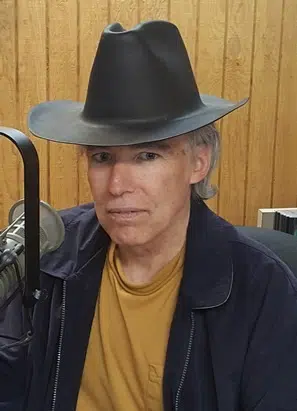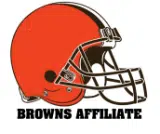Who will come out on top between No. 3 St. Louis and No. 6 Philadelphia? Let’s break down the deciding factors in Friday’s first NL Wild Card Series matchup.
It’s been 11 years since the Cardinals and Phillies last met in the playoffs. (And that last one—an NLDS victory for the Cardinals en route to the World Series—left some lasting memories.) Now, it’s time for the Phillies’ first trip back to the playoffs since then, which means a rematch. St. Louis will be hosting as the No. 3 seed after winning the NL Central; Philadelphia is the No. 6 seed after getting the last wild-card berth. Here are three factors to watch for in the best-of-three series starting Friday:
How much will Philadelphia have to rely on its bullpen?
Here’s a stat: The Phillies called on their bullpen less than any other team this year in the National League. Their starters averaged 5.6 innings per start, highest in the NL, which meant their relievers ended up throwing far fewer frames than the average club. That might seem like a potential indicator of a terrible bullpen, or at the very least, one not trusted by interim manager Rob Thomson. But that’s not the case! This was actually the best the Phillies’ bullpen had been in years. But it was also quite up-and-down. Zoom in on their second half: They posted the highest relief ERA in the NL at 5.10. (Yikes.) But much of that came from injuries to players who are now healthy, like Seranthony Dominguez and Brad Hand, and their peripheral stats were much better than their raw numbers. (Their second-half strikeout rate was behind only the Mets and Braves in the NL.) This isn’t a bad ‘pen. But outside of lockdown option José Alvarado, it’s not a decidedly good one either, and it works best when kept to small doses.
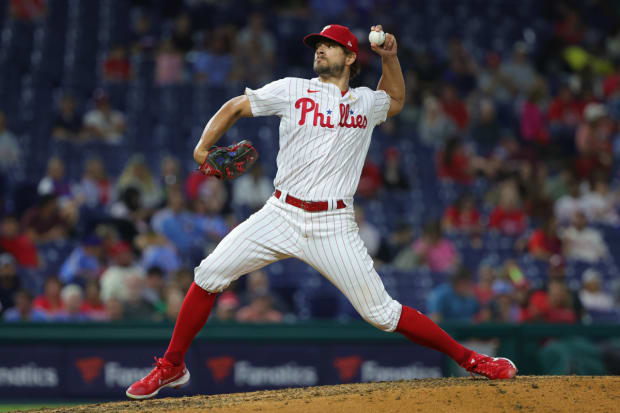
Bill Streicher/USA TODAY Sports
Which means the Cardinals have one very obvious plan of attack: Get to this bullpen early. The Phillies’ projected starters are clear—Zack Wheeler (Game 1 on Friday), Aaron Nola (Game 2 on Saturday) and Ranger Suarez (Game 3 if needed on Sunday)—and all three can pitch deep into games with solid performances. But to the extent St. Louis can stretch out at-bats, force the pitch count upwards and get to the relievers as soon as possible, it’ll be better for it.
Will there be a chance to neutralize the Cardinals’ offense?
First, generally, the St. Louis offense is a huge strength. But much of that comes from the fact that it crushes left-handed pitching: The Cardinals’ 126 OPS+ against lefties this season was the best in baseball. They have not just MLB’s highest performing hitter against left-handers, but the highest two in Paul Goldschmidt (267 OPS+) and Albert Pujols (214). (Yes, this farewell season has seen Pujols demonstrate that he can be more than just a situational weapon against southpaws—but he’s definitely still that.) And neither Nolan Arenado nor Lars Nootbar are too far behind. Truly, woe betide any lefty who has to face this lineup: It’s scary. Which is not to say St. Louis struggles against right-handed pitching—it’s still above average there—but it’s certainly not the fierce, nigh-unstoppable force it is against left-handed pitching.
And that’s good news for the Phillies: This is a very righty-heavy pitching staff. Both Wheeler and Nola, the projected starters for Games 1 and 2, are right-handed. Every single bullpen arm is right-handed save José Alvarado (their best reliever) and Brad Hand (fresh off an elbow injury that sent him to the 15-day IL). That creates something of an opportunity for Philadelphia. No, it’s never easy to face a lineup with hitters like Goldschmidt and Arenado. Yes, there are still a lot of challenges here. But the Phillies are just about as equipped for a challenge here as any staff could be.
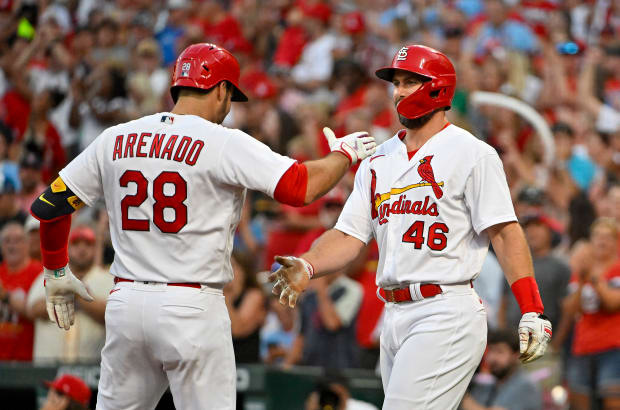
Jeff Curry/USA TODAY Sports
What can the Cardinals expect from Ryan Helsley?
The Cardinals’ All-Star reliever left his last game of the regular season on Tuesday with a jammed finger. The team says they believe he’ll be fine for Friday after taking a day off from throwing on Wednesday—and they’ll certainly be hoping that is true, because there’s no pitching weapon on either side of this series like a healthy, full-strength Helsley.
The Cardinals’ bullpen is solid to begin with: in addition to Helsley, St. Louis features righthanders Giovanny Gallegos, Chris Stratton and Andre Pallante, plus lefties Zach Thompson and Steven Matz, who has been excellent (1.69 ERA) since joining the bullpen upon his return from the IL on Sept. 17. Beyond those relief options, though, the Cardinals also have a wealth of starters whom they can use out of the ‘pen in this short series. On Thursday, the Cardinals announced that José Quintana, whom they acquired from the Pirates at the trade deadline, will start Game 1, All-Star Miles Mikolas will be on the mound for Game 2, and Adam Wainwright, Jack Flaherty and Jordan Montgomery will all be available in relief throughout the series. Meanwhile, Game 3’s starter is TBD, leaving plenty of options open for manager Oliver Marmol. (Rounding out the notable bullpen arms here: St. Louis activated fireballer Jordan Hicks and recalled top pitching prospect Matthew Liberatore in the final week of the regular season.)
But even with all those choices, all things considered, they’d still really like to be able to turn to Helsley. A reminder of what he did this season: A 1.25 ERA (306 ERA+) with a strikeout rate of 13.1 K/9. He threw the hardest pitch in baseball this year at 104.2 mph—and hit 104 mph again in that same appearance. He’s a force, and they’ll want him fully healthy.
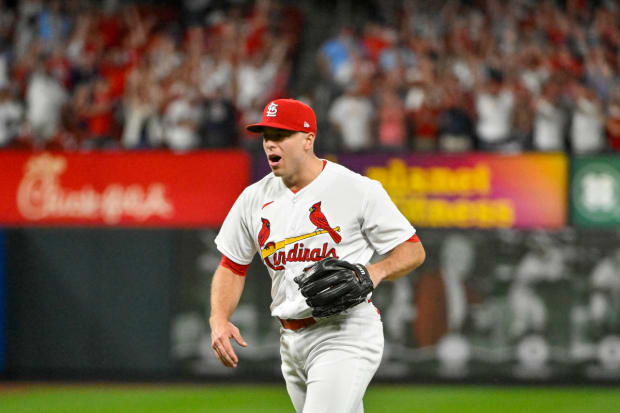
Jeff Curry/USA TODAY Sports
More MLB coverage:
• World Series Predictions: Expert Picks Entering the Playoffs
• The MLB Culture Wars That Led to Joe Maddon’s Firing
• Inside Aaron Judge’s Pursuit of Home Run History
• ‘Let’s F—ing Party’: The Mariners Finally End Their 21-Year Playoff Drought





